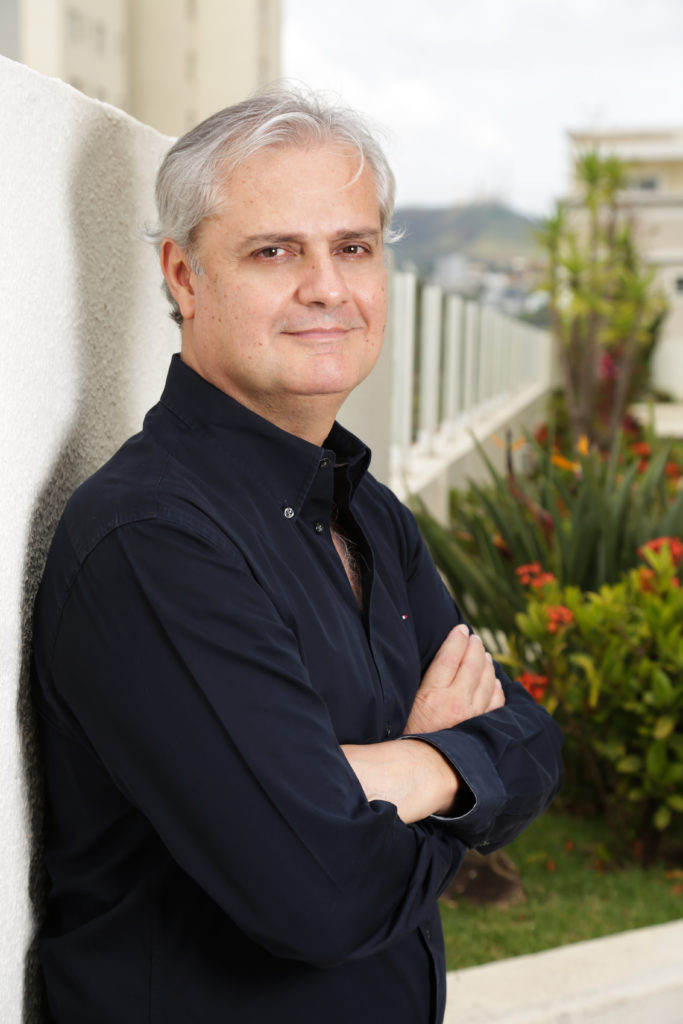
1984 vs. Brave New World
Orwell tells us a story that takes place in the “future” year of 1984 in England, an integral part of the megablock of Oceania. The megablock imagined by Orwell is named after the world because it is a sum of countries of all oceans. Oceania has experienced totalitarianism, disguised as democracy, since the IngSoc (the Party) came to power under the tutelage of the ubiquitous Big Brother.
The story of Winston Smith, an external party member, an official of the Ministry of Truth, recounts his daily function of rewriting and altering data according to the Party’s interest, in other words, his office was to transform reality. In the Ministry of Truth, he altered data, threw the originals into the incinerator, as well as anything that could contradict the wills and desires of the Party. At all times, Winston questions the oppression that the Party exerted on society. If someone thought differently from the party, this person committed crime, that is, crime of idea, being inevitably arrested by the Thought Police and disappeared without leaving a trace or clues.
The 1984 book emphasizes the individual as a mere piece to serve the state or the market through total control, including double thought and language reduction (novilanguage). Winston Smith represents the citizen of the future where he is constantly watched by telescreens and party laws and rules. He and all citizens knew that any suspicious attitude could mean his disappearance, creating a climate of total paranoia among people, where co-workers, neighbors and their children were encouraged to report to the Thought Police anyone who committed crime.
Just as an example, let’s look at the recent case of the Superior Electoral Court (TSE) by announcing a partnership with Facebook and WhatsApp to “combat misinformation and abuse during the 2020 elections”. The agreement is part of a series of measures taken by the court to encourage the circulation of “official information” about the electoral process eliminates the circulation of fake news, misuse of robots, illegal boosts and use of fake profiles. It’s the thought police dressed up as judges at the highest court in the country.
Aldous Huxley, on the other hand, created a futuristic “fable” about a fully organized society, showing a world consisting of a scientific system of castes, of excessive order where all individuals were regulated since their generation by genetic control (predestination) and mental conditioning. The varieties were divided into superiors: betas, alphas and alphas + that originated from biologically superior eggs and fertilized with biologically superior sperm. The lower varieties: more numerous than the upper varieties, received a differentiated treatment from inferior eggs, fertilized by lower quality sperm, through a process called Bokanovsky, being treated with alcohol and other protein poisons.
This caste system kept people dominated by the system for an apparent harmony insociety; the free choice abolished, servitude became acceptable through regular doses of happiness chemically transmitted by the “Soma” (the drug released from the future), and where ideologies were communicated and taught in night courses taught during sleep. Soma had no undesirable side effects. Taken in small doses provided a sense of happiness; however, at higher doses, it provoked pleasant visions, without any physical or mental strain. Questions, doubts and conflicts had no room in Huxley’s society, because even desires and anxieties were controlled by “Soma”, having as its primary objective, to preserve order and stability.
Both authors are not antagonistic in their works. Quite the contrary! His works are complementary, because the current world is a world based on the development of genetics, between the upper and lower castes, but controlled by the great brother. Technology and the internet enable access to telescreens, speech and other tools for control anywhere on the planet, except for places where the proles are.
The idea of total control rests on the premise that only where there are thoughtheads will it be necessary to keep them under constant surveillance, controlling their steps, their looks, their actions and their feelings. The offspring do not need control, because it is enough to give them as little as possible and it is content: made up of people living under a reality of poverty, misery or without educational training, making them alienated, preventing them from reasoning, evaluating and demanding any change. The feeling that endures is that it could be better, but it’s good that way. Your desires and longings are of a simple nature. Basta have their basic needs as food and housing satisfied by the government and the rest is superfluous.
My theory about many readings of 1984 is that the prole is simply the lower class — the disadvantaged, without political force and without education. I would say that they have counterparts in every economy in the world — individuals from the poorest working classes who are easily deceived and manipulated; too weak to fight against existing power.
The works of Orwell and Huxley are no longer considered futuristic or a fable… They are the reality of what we always used to think of as a distant future.
Alexander Freire